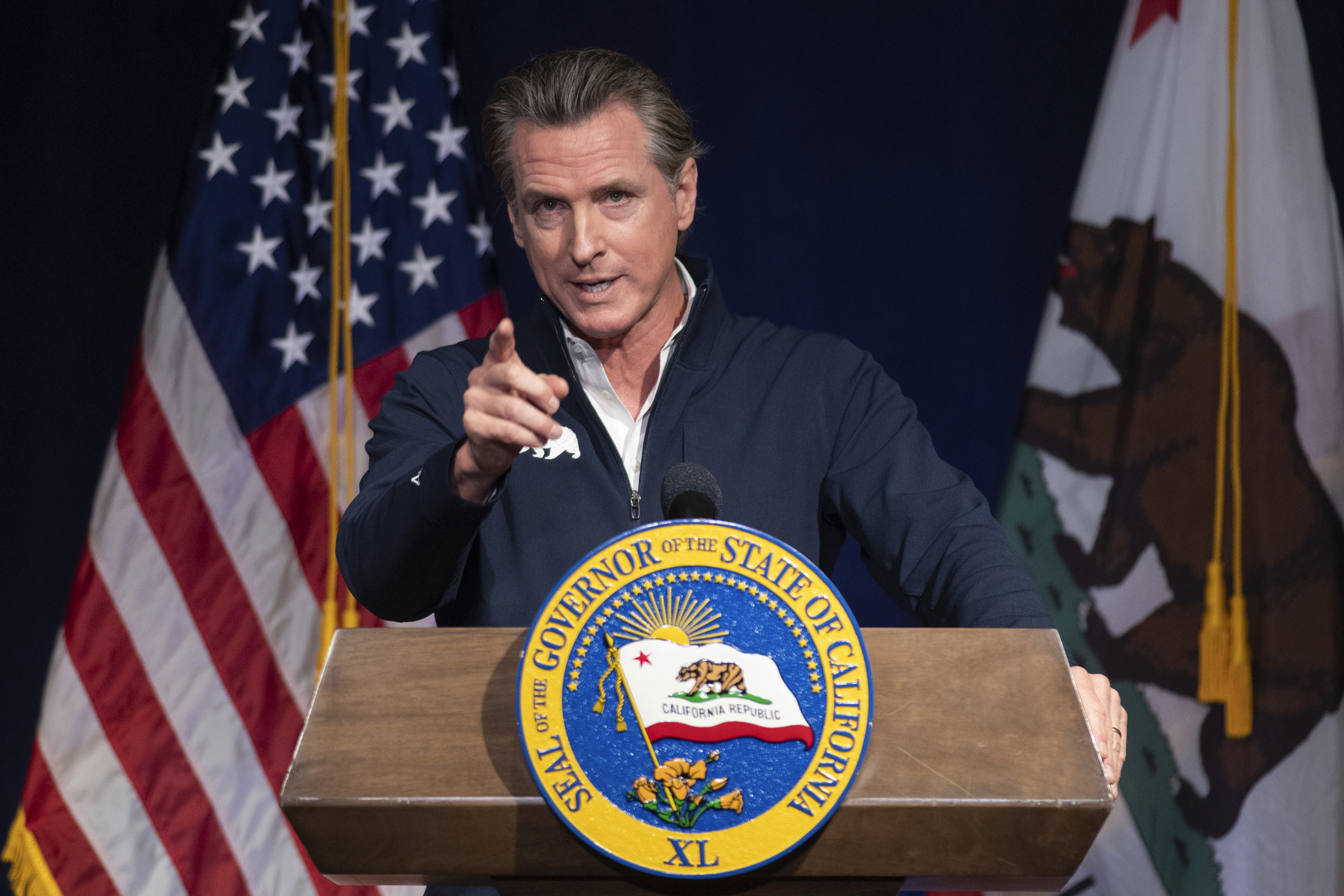Gov. Gavin Newsom unveiled a proposal Sunday for a ballot measure that would fund housing for people with mental illness, the latest chapter in California’s half-century struggle with homelessness and behavioral health.
The measure would issue bonds to raise as much as $5 billion for building campus-like facilities where patients could walk from apartments to treatment centers, as well as cottages that would also have nearby programs for treating mental illness and substance abuse. The money would also be used to build permanent housing for homeless people suffering mental illness.
“We have to come to grips with the reality of mental health in this state,” Newsom said during a Sunday press conference at Alvarado Hospital Medical Center in San Diego. “It’s unacceptable what we’re dealing with this problem at the scale we are now in the state of California.”
The plan marks a reversal of still-controversial reforms begun during the 1960s when a law signed by then-Gov. Ronald Reagan sought to preserve the civil rights of mental patients. Tens of thousands of Californians were released from facilities during the ensuing years without adequate support. Homelessness, meanwhile, ballooned.
Break From Past
Newsom’s proposal would not rebuild the mental institutions of the past, his announcement said, but instead create various types of facilities, including apartment complexes with on-site treatment capabilities, “cottage settings” where residents could use outside services, as well as long-term supportive housing, where residents will live something akin to normal lives. Bond funding would also build housing especially for military veterans, who make up more than 10,000 of California’s homeless, Newsom’s announcement said.
California’s lack of success addressing pervasive homelessness—which during the coronavirus shutdowns grew steadily from its 2020 level of more than 161,000—had been deemed in a 2018 United Nations report to be a violation of international human rights law.
Newsom’s failure to resolve the problem during his first years as governor formed the basis for rallying cries demanding his removal from office during a 2021 recall campaign. That was the same year California’s auditor slammed the state’s scattershot and ineffective spending of $13 billion on homelessness during the previous three years.
Public criticisms of Newsom have focused on the growing impact of homeless encampments on middle-class Californians. But specialists have long recognized an intertwined relationship between mental health and housing.
Homelessness, Mental Health Intertwined
According to one 2021 study, 21% of homeless people report having serious mental illness, compared with 5% in the general U.S. population. Living on the streets, meanwhile, can exacerbate certain mental conditions, such as depression and anxiety, and make it more difficult for people to access treatment and support.
According to the U.S. Department of Housing and Urban Development, California has the highest rate of homelessness in the country, while in San Francisco alone, there are an estimated 8,000 homeless people.
Over the years, California has tried building more affordable housing, increasing funding for mental health services, and providing case management and support for people experiencing homelessness. Yet progress has been slow, and the problem has continued to worsen.
Gov. Newsom has made addressing homelessness a priority since taking office in 2019. He has proposed a number of initiatives aimed at increasing housing and services for people experiencing homelessness, including a 2021 plan to spend $12 billion addressing homelessness and mental health.
Newsom said Sunday that the issue of mental health is personal for him, noting that social isolation is a leading cause of death in America.
“I just lost someone I went to the prom with to suicide a couple weeks ago,” he said, adding that he lost a grandfather to suicide, too. “He came back, prisoner of war, completely changed man,” Newsom said.
Newsom’s Sunday announcement won praise from Rafael Mandelman, a member of the San Francisco Board of Supervisors who has pushed for better programs treating the city’s mentally ill population.
“Thanks to Gavin Newsom for proposing a significant step toward more direct State responsibility for the humanitarian crisis of untreated mental illness and addiction unfolding on our streets,” Mandelman said in a Sunday tweet.
